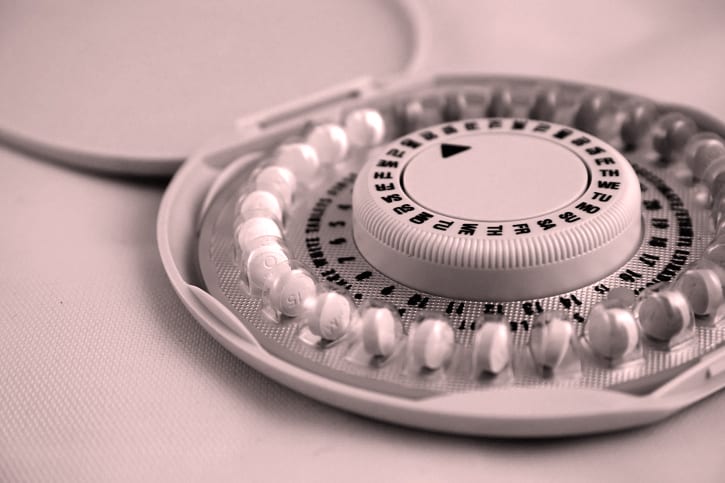It’s estimated that more than 11 million women use oral contraceptives (aka “the pill”) in the U.S. alone. It’s hard to believe but it wasn’t always easily accessible. During the 60’s, oral contraceptive pills (OCPs) were illegal in eight states, and it wasn’t until years later that the benefits of birth control were recognized by the FDA.
In addition to preventing pregnancy, birth control pills are also commonly used to treat a whole host of problems including severe cramps, irregular periods, and acne.
However, there are also side effects. Common symptoms include nausea and bloating, but OCPs can also have more significant health risks associated with their use.
Below are five side effects that should not be ignored:
1. Migraines
Taking birth control pills can trigger severe migraines in some women. Additionally, many women with pre-existing migraines may not be good candidates for OCPs. Women who suffer from a type of migraine called migraines with aura (meaning they have specific symptoms that occur before the migraine actually starts) who take OCPs are of particular concern because data suggests these women are at greater risk of stroke. If you fall into this category, there are several other safe options for birth control. In some cases you may benefit from a different pill without estrogen or a non-pharmacological intervention.
2. Blood Clots/DVT
Because many birth control pills contain estrogen, women who take them are at increased risk of developing blood clots. This risk can increase significantly if you smoke and are over the age of 35. Blood clots usually develop in the lower legs, but can be fatal if they travel to the lungs. If you develop any calf pain, swelling in the lower leg, or shortness of breath you should be evaluated immediately.
3. Hypertension
Birth control pills are also responsible for increases in blood pressure in many women, particularly those who are already diagnosed with hypertension. The mechanism of this is widely debated, however your blood pressure should be checked before starting the pill. A follow-up appointment to evaluate blood pressure and any side effects should also be done by your healthcare provider within a few weeks of starting the medication.
4. Prolonged bleeding
Depending on the hormones contained in your birth control, many women experience intermittent spotting or bleeding while on the pill. In many cases, the longer you take the pill the more likely this is to subside. For others, however, heavy bleeding requiring multiple pads can occur while taking an OCP. This is rare, but may lead to the development of anemia. You will require a blood test to evaluate this and supplementation of vitamins may also be recommended.
5. Liver Tumors
In extremely rare cases, women taking OCPs can develop benign tumors of the liver. Some have no symptoms, and others have mild abdominal pain. More frequently these are found in women taking pills with higher doses of estrogen. These tumors are not thought to be cancerous and usually require surveillance.





